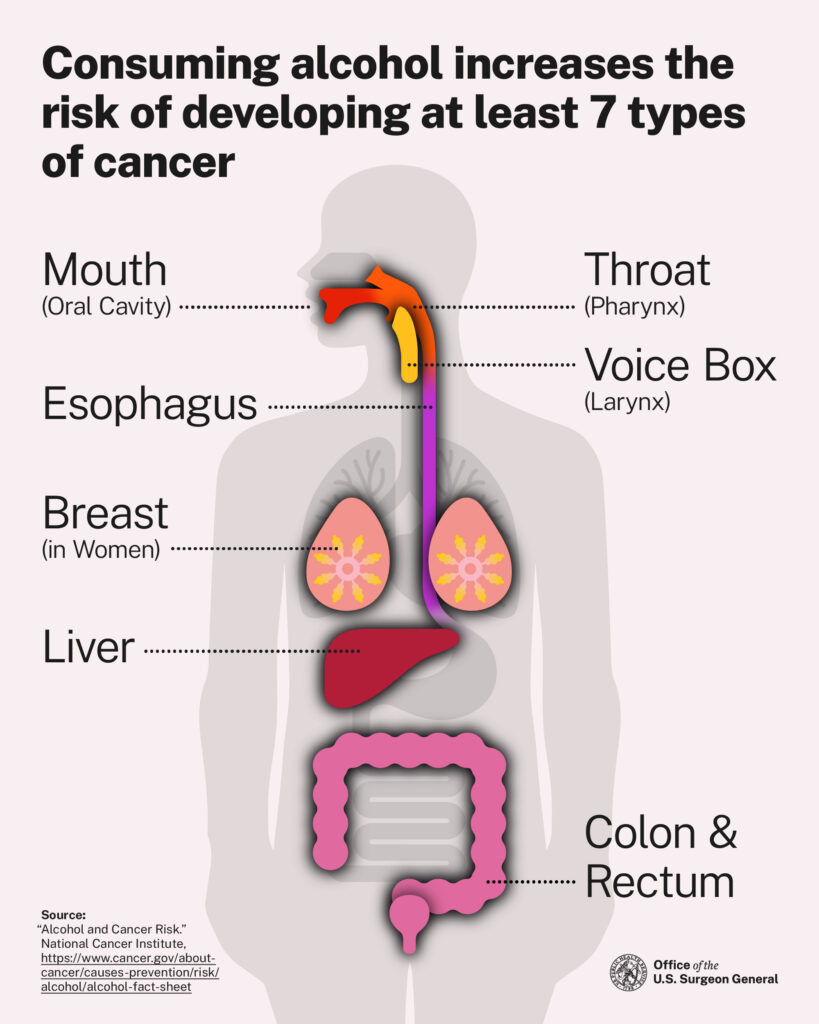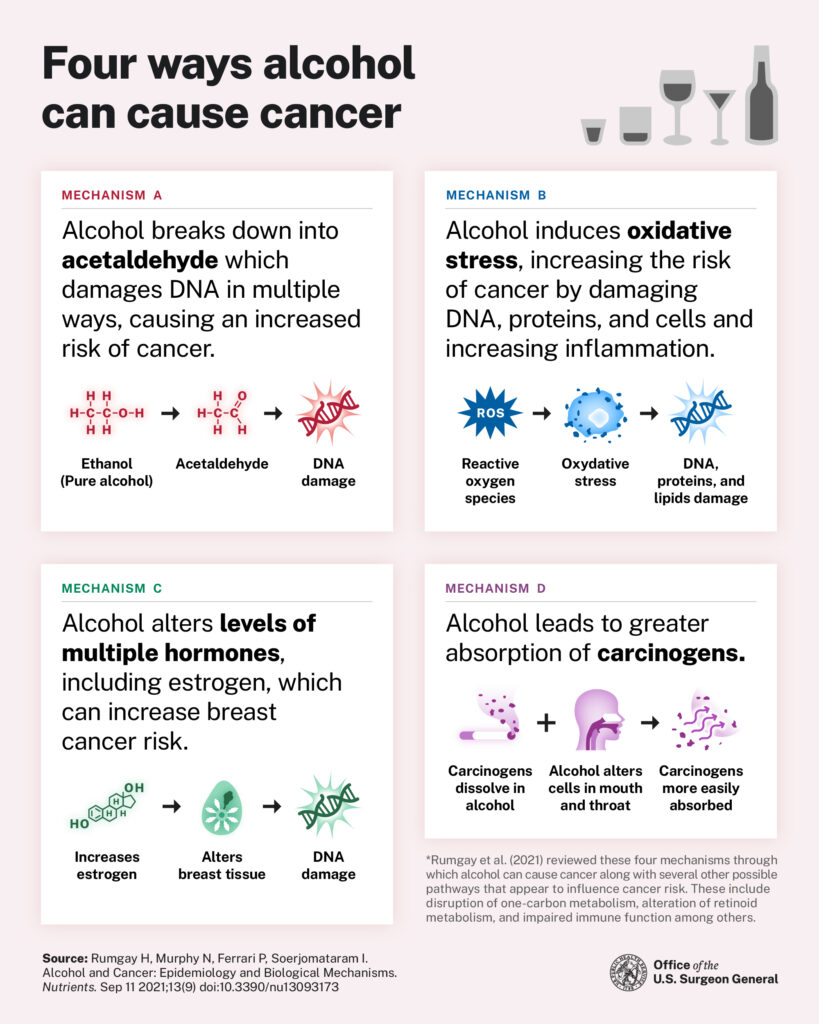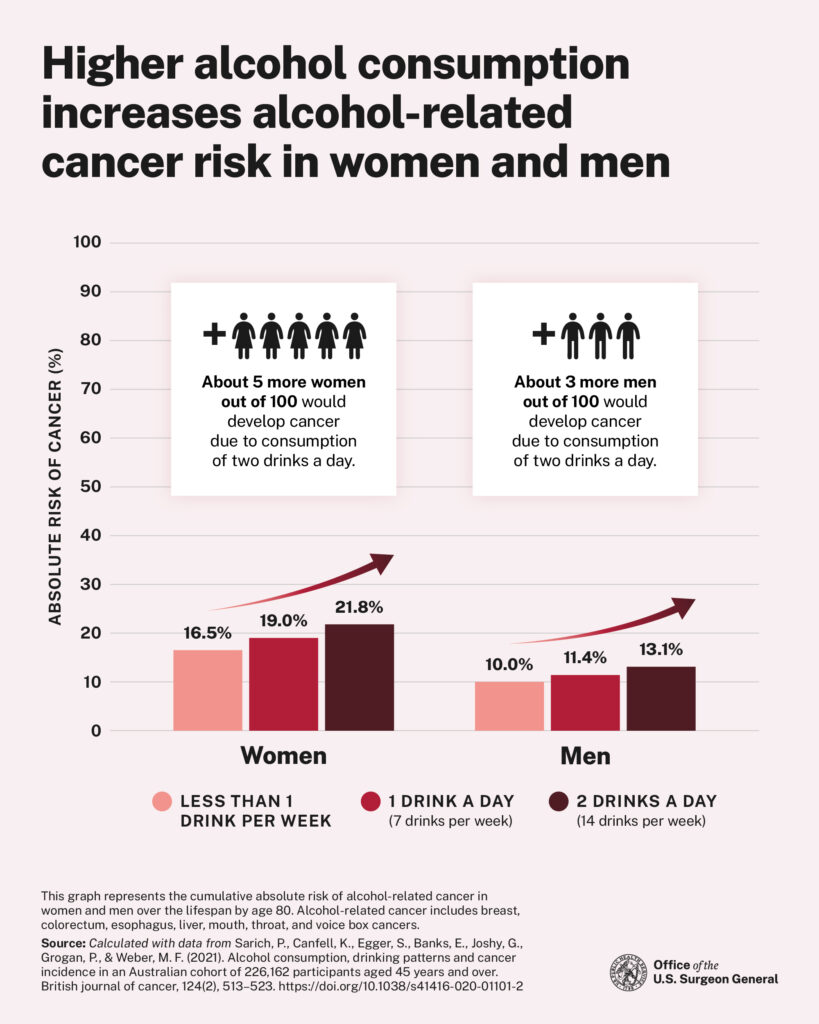In a significant public health announcement, U.S. Surgeon General Dr. Vivek Murthy has issued a new advisory highlighting the direct link between alcohol consumption and an increased risk of cancer. This development is particularly pertinent to residents of Iowa, a state with one of the highest incidences of alcohol-related cancers in the nation.

Dr. Murthy’s advisory emphasizes that alcohol consumption is the third leading preventable cause of cancer in the United States, following tobacco use and obesity. The advisory identifies alcohol as a risk factor for at least seven types of cancer, including those of the mouth, throat, esophagus, liver, colon, rectum, and female breast.
A particularly concerning aspect is the lack of public awareness regarding these risks. Studies indicate that only about 40% of adults are aware of the connection between alcohol consumption and cancer.
The 2024 Cancer in Iowa report, issued by the Iowa Cancer Registry, reveals that Iowa has the fourth-highest incidence of alcohol-related cancers in the United States and the highest rate in the Midwest. The report also highlights that Iowans’ alcohol consumption—in both volume and frequency—is among the highest in the nation, which correlates with the state’s elevated cancer rates.
In rural areas, like those surrounding Mason City, the impact is particularly stark. A 2022 survey conducted by the Iowa Department of Public Health revealed that nearly 22% of adults in rural Iowa engage in binge drinking, compared to the national average of 16%. This pattern of excessive alcohol use has contributed to higher rates of throat and esophageal cancers, which are linked directly to alcohol’s carcinogenic effects on the upper respiratory and digestive tracts.
“Excessive alcohol consumption is not just a social issue—it’s a public health crisis,” says Dr. Henry Diggelmann, an ENT specialist at Mason City Clinic. “We see patients every week with advanced cases of oral or throat cancer, many of which could have been prevented through lifestyle changes.”

The ENT department at Mason City Clinic often treats cancers in the head and neck region, many of which are linked to alcohol consumption. Alcohol acts as an irritant, damaging the cells in the mouth and throat. Over time, this damage can lead to mutations that result in cancer. Furthermore, when combined with tobacco use, the risk of developing these cancers increases significantly.
“Patients often don’t realize how much alcohol contributes to cancer in the upper respiratory tract,” explains Dr. Diggelmann. “Even moderate drinking can increase your risk. For heavy drinkers, that risk skyrockets. This is particularly concerning in rural Iowa, where access to specialized cancer care may require long travel distances.”
Dr. Diggelmann also notes the importance of early detection. “The key to successful treatment is catching these cancers early. Unfortunately, many patients delay care until symptoms are severe, such as persistent hoarseness, difficulty swallowing, or unexplained weight loss. By then, treatment options may be limited.”
The Surgeon General’s warning and Iowa’s alarming cancer statistics underscore the need for increased public awareness and prevention efforts. Reducing alcohol consumption is a vital step in lowering cancer risks. For individuals who drink regularly, seeking support through community programs or healthcare providers can make a significant difference.
Dr. Diggelmann emphasizes that education is key. “We need to have open conversations about alcohol and its risks. The more informed our patients are, the better choices they can make for their health and their families.”

For those in rural Iowa, access to medical resources can sometimes be a barrier to preventive care. Mason City Clinic is committed to providing comprehensive ENT care, including screenings for alcohol-related cancers. The clinic also partners with local organizations to offer educational workshops and resources on reducing alcohol consumption.
If you or a loved one are experiencing symptoms such as persistent sore throat, difficulty swallowing, or changes in your voice, don’t wait. Contact Mason City Clinic to schedule a consultation with one of our specialists. Early detection could save your life.
Up-to-date. Down-to-earth. Close to home. Lots of great reasons to make Mason City Clinic
your first choice for all your family’s specialty healthcare needs.
250 S. Crescent Drive, Mason City, IA 50401
Tel: 641.494.5200
Toll Free: 800-622-1411
Fax: 641.494.5403